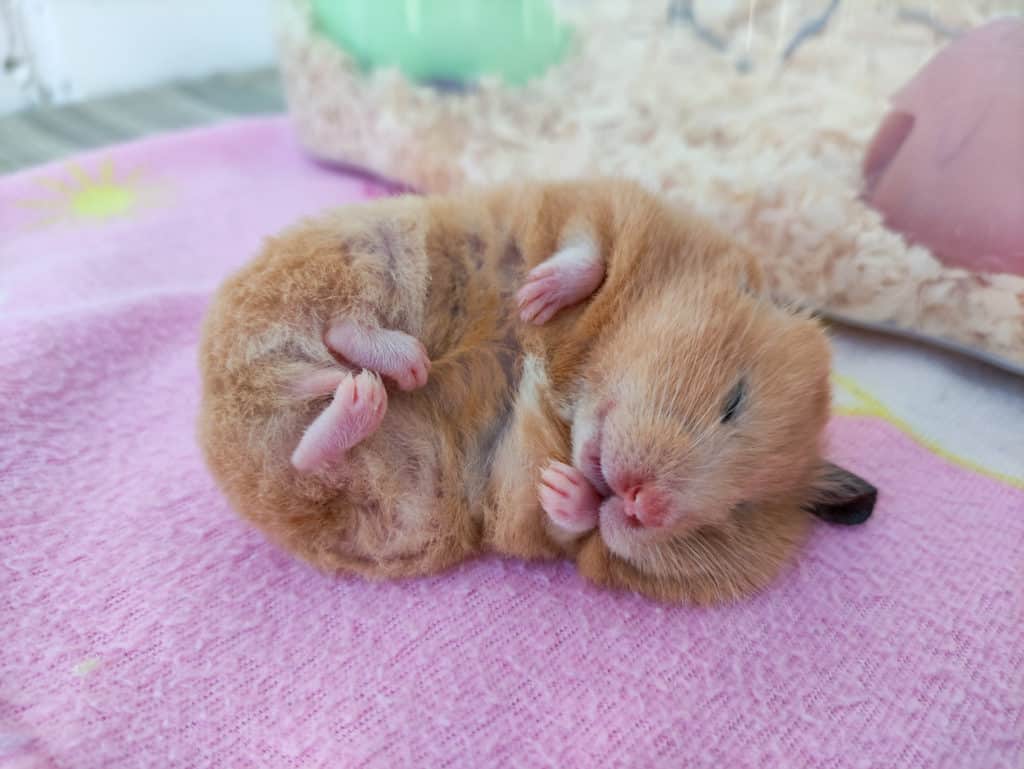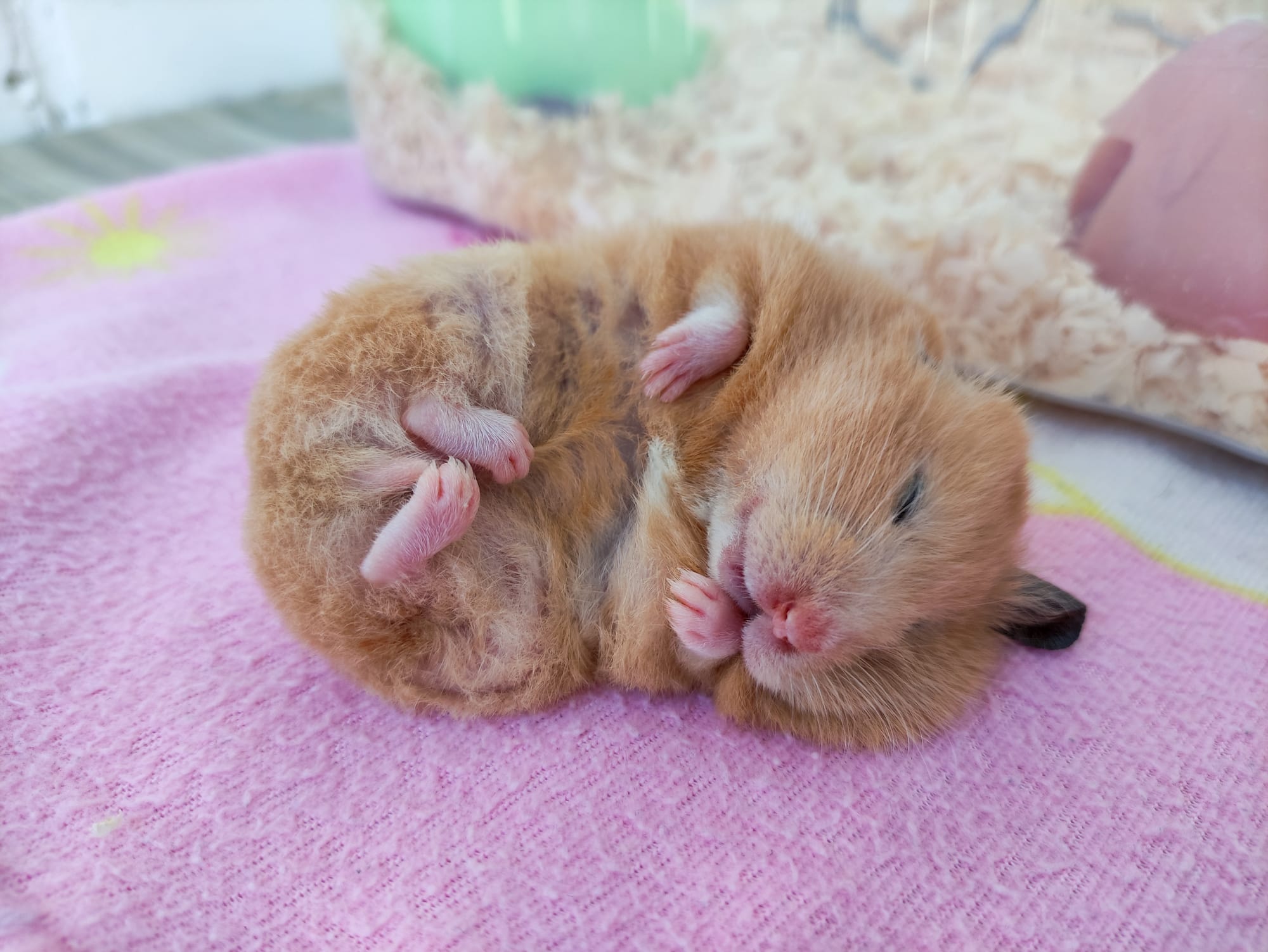We know that snoring can be a difficult problem to survive, especially when it is not you but your partner who is suffering from it. After all, snoring has destroyed millions of families across the world. Humans have a hard time overcoming the snoring problem. But what about hamsters? Do hamsters snore? Do their partners leave them because of that? Does snoring destroy hamster families too? What do you do if your hamster’s snore disturbs your sleep? Keep reading and find out.
Snoring
What is snoring?
Snoring is the sound that results when the air you breathe makes the tissues in your throat vibrate.
Snoring is a very common condition. Around 45% of adults snore occasionally and 25% snore regularly (Source: Hopkins Medicine). Yet, it is not something that people put up with. Snoring is the third most common reason for divorce in the USA, whereas, in the UK, it is the second most common reason (Source: News 4 Jax & Watkins and Gunn).
What causes snoring?

During the transition from light to deep sleep, the muscles in your soft palate, tongue, and throat become relaxed, partially blocking your airway. When air passes through this partial blockage, it starts vibrating, creating a sound that we know as snoring.
As your airway gets more restricted, the air passing through it gains more power, which can make the sound of your snoring louder due to increased tissue vibration.
Snoring can be caused by many factors (Source: Mayo Clinic). Some of these are:
- Nasal problems – Nasal congestion or an abnormal/crooked partition between the nostrils can cause snoring.
- Sleep deprivation – A lack of sleep can also lead to an increase in muscle relaxation.
- Mouth anatomy – A thick, low-lying palate can narrow the airway, causing snoring. For example, people who are overweight may have extra tissue at the back of their throats that could restrict the airway.
- Sleeping position – Sleeping on the back can increase the risk of snoring due to gravity’s effect on throat muscles resulting in the narrowing of airways.
- Allergies – Allergies, like hay fever, can also cause snoring.
Now that we know what causes snoring in humans, let’s find out if hamsters snore, and if they do, what to do about it.
Do hamsters snore?
Snoring is not as common in hamsters as in humans. However, it is not entirely unheard of. Older hamsters are more prone to snoring, as are young pups.
Besides snoring, hamsters can also make other weird breathing noises (We will look at these in a later section of this blog post). But why do hamsters snore? Let’s find out.
Why do hamsters snore?
The cause of snoring in hamsters is the same as in humans. When the airways of your hamster are blocked partially, the air that travels through the nasal cavities starts vibrating. The primary cause of snoring in hamsters is allergy (Source: Hamster Geek).
Some of the causes of allergy in hamsters are:
Bedding
Hamsters can develop an allergy to their bedding. Using the wrong type of bedding, like pine and cedarwood shavings and sawdust, can not only cause allergies but also irritate the respiratory tract causing respiratory diseases and other severe health complications. So, make sure that you choose the right type of bedding. In general, aspen wood shavings and paper-based substrates are the best bedding for your hamster.
Scented bedding is also a big no-no because of your hamster’s sharp sense of smell.
Even if you use the right type of bedding, hamsters can still develop an allergy to it, albeit rarely.
Hamsters can also become allergic to the dust in the bedding. When the bedding material is packed, dust particles can get in between the bedding material. So, when purchasing bedding for your hamster, clean the package contents properly before use.
You should also spot-clean the bedding every day to remove the feces and the soiled bedding where your hamster urinated. Moreover, you should change the bedding once every few weeks.
If your hamster snores once in a blue moon, you don’t have to worry about anything. But if your hamster constantly snores while sleeping, he might have developed an allergy to the bedding. So try changing the bedding.
Sanitizing agents
Hamsters can develop an allergy to the sanitizing agents and other cleaning products you use to clean the cage. If your hamster snores a lot after you clean the cage, and the snoring eventually dies out with time, the sanitizing agent you use can be the culprit. If that’s the case, try changing the sanitizing agent.
Food
Hamsters can also develop allergies to some food items. If your hamster starts snoring after you introduce a new treat, your hamster might have an allergy to it. So, stop the food item for some time and see if your hamster’s snoring reduces. If it does, then stop giving that food item to your hamster.
As discussed earlier, snoring is not the only sound hamsters make. They also make several other breathing sounds that hamster owners often mistake as snoring.
What other weird breathing noises do hamsters make?
Besides snoring, hamsters can also make the following weird breathing noises:
- Making noises like squeaking while sleeping
- Coughing
- Sneezing
- Wheezing
Reasons behind your hamster’s weird breathing noises
Making noises while sleeping
According to researchers at MIT, animals have complex dreams just like humans. But what do animals dream about?
A study on rats indicated that they could retain and recall long sequences of events when they sleep. Rats were made to run on a circular track to get a food reward. Then, researchers measured the rats’ brain activity during this task and their sleep. The researchers found that the brains of rats fired a distinctive pattern of neurons in the hippocampus (the region of the brain responsible for memory) when they ran. The same pattern of neurons fired once again when the rats slept.
To put it bluntly, rats dreamed about the task they did when they were awake. Indeed, their dreams were so similar to the task that by measuring their brain activity when they dreamed, researchers could tell where they were on the circular track (in the dream) and if they were standing or running (Source: MIT).
OK, so why was all that technical stuff important? It is important because it tells us that rats (and most probably, your hamster, too) dream about what they did when they were awake. So, if your hamster is stressed while awake, he could dream about it when he sleeps.
If you have multiple hamsters and if one hamster was attacked by other hamsters while he was awake, he could dream about the same experience when he falls asleep. In this case, he might make sounds like squeaking while dreaming. If you want to find out the reasons behind different noises that hamsters make, read: Why is my hamster squeaking?
Submissive hamsters are more prone to making noises while they sleep.
If you find that your hamsters are aggressive towards each other, separate them and put the submissive hamster in a different cage.
Coughing, sneezing, and wheezing
Just like humans, hamsters can also cough, sneeze, and wheeze. The reasons behind these sounds are:
Your hamster has caught a cold
The most common reason why a hamster sneezes, wheezes, or coughs is the common cold or flu. Just like humans, hamsters can also catch a cold. If you had left the window open when it was cold outside or if the temperature of the room was below the recommended range (i.e., < 18°C), your hamster might have caught a cold. So, make sure that the room temperature is always between 18°C and 24°C.
Hamsters can also catch a cold from humans. So, do not touch your hamster if you have a cold. Wash your hands properly with soap before keeping food for your hamster. Use gloves if needed.
If you have multiple hamsters, isolate the sick hamster from the healthy hamsters and temporarily keep him in a separate cage. Remove the other healthy hamsters, too, from the cage. Then clean the hamster cage, disinfect it, remove feces and soiled bedding, and replace the bedding before placing the healthy hamsters in the cage once again.
To find out if your hamster has a cold, look at his nose and listen to his breathing. If his nose is wet or he has trouble breathing, it could be the common cold.
If the cold symptoms go away within a couple of days, you have nothing to worry about. Otherwise, take your hamster to a vet.
Hamsters can cough, sneeze, or wheeze also due to respiratory diseases like pneumonia, bronchitis, and emphysema (Source: First Hamster).
Pneumonia
Pneumonia is not common among hamsters, but it isn’t unheard of. It can be caused by a single kind of bacteria, multiple types of bacteria, or a combination of bacteria and other pathogens like viruses (Source: PetMD). Pneumonia could also develop as a secondary infection if a cold or flu is left untreated.
If your hamster has pneumonia, he will constantly cough and/or sneeze and have trouble breathing. Mucus discharge from the nose and eyes is also possible.
Just like a common cold, pneumonia is also infectious. So, separate the sick hamster from the healthy hamsters, clean the cage, and change the bedding, as explained above. Make sure that the room is warm enough for your hamster. Take your hamster to a vet if you notice the symptoms of pneumonia.
Chronic Bronchitis
Bronchitis is an infection that causes the airways of the lungs to become irritated and inflamed. It is another lung disease that hamsters can get. Symptoms include coughing, wheezing, and troubled breathing.
The cause of chronic bronchitis in hamsters is not clear. It could be because of allergies or genetic defects.
Hamsters were only domesticated in the last century. Once it became possible to breed hamsters under laboratory conditions, hamsters were shipped to different countries, and the demand for them as pets increased drastically. Therefore, pet breeders started inbreeding hamsters. Indeed, the lineage of all the Syrian hamsters today can be traced back to a brother-sister duo captured in the 1930s.
While inbreeding resulted in friendlier and cuter hamsters, it also created genetic defects in the offspring. One of these defects made hamsters more prone to respiratory problems like chronic bronchitis. In humans, chronic bronchitis is a disease that smokers are more prone to.
Emphysema
Emphysema is another condition that is more common among smokers than the general population. However, hamsters can get this disease, probably because of genetic defects.
When it comes to these respiratory infections, if your hamster sneezes once in a while but is otherwise healthy, you don’t have to worry about anything. However, if there are accompanying symptoms like difficulty in breathing, wheezing, loss of appetite, or decreased activity, you should take your hamster to a vet as soon as possible (Source: The Spruce Pets).



